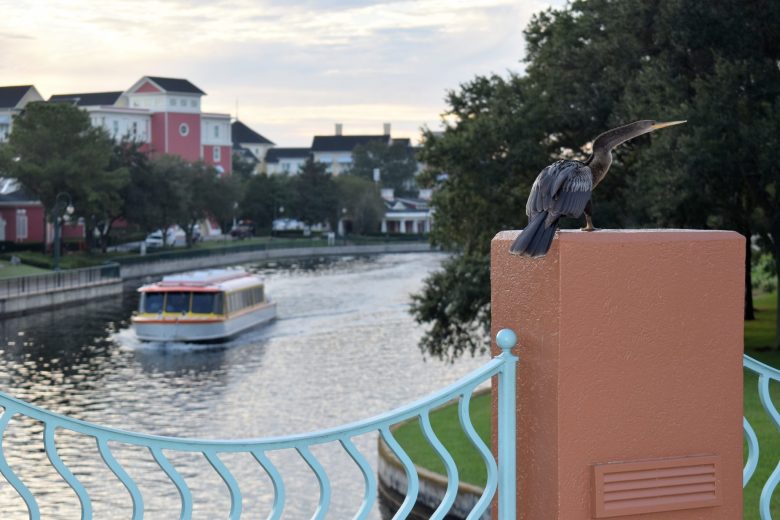THIS POST MAY CONTAIN AFFILIATE LINKS, MEANING AT NO ADDITIONAL COST TO YOU, I WILL EARN A COMMISSION IF YOU CLICK THROUGH AND MAKE A PURCHASE
The way we travel has a huge impact on our environment. There are so many ways that we can be thoughtful and sustainable in the ways that we travel the world.

What is Sustainable Travel?
Sustainable travel might be a new term to most but what it encompasses should not be a stranger to anyone. Think green- travel, eco- travel or thoughtful-travel. Sustainable travel means you care about people, the planet and want to leave a positive impact. This doesn't mean that you have to give up luxury but it means you make informed decisions about where you go, where you stay, what you do and how you act.
Why is Sustainable Travel Important?
Think about what happens to things that are subject to constant abuse. Over time the quality diminishes. Sustainable Tavel looks at the environmental impact that overuse of resources destroy the natural and cultural landscapes. Think beyond the environmental impact, and look why we want to avoid uprooting local communities and destroying cultural traditions.
These ten tips to sustainable travel offer you some suggestions on how to travel better.
1. Choose Wisely
Selecting a destination that has a true concern for preserving the environment is one of the most important things we can do as travelers. Check with the tourism board or do a quick google search of your selected destination and see where they stand. Most destinations value what they are doing and will proudly display it on the website.
2. How will you get there?

Slow travel reduces your carbon footprint. The rail (train)system is a great option when possible and it also allows you to see other areas while riding. Many airlines are realizing that we value this and are taking extra steps. Alaska Airlines and American Air seem to be leading the way and publish a sustainability report each year of the progress.
3. Eco-Conscious Accommodations
Renting condos and houses are a great way to not only save money but to pull resources. Often times the owners will act as tour guides or at least provide insider tips on best things to see. If you choose to stay in a hotel, the large chains will have information about their sustainability practices on their website. You can also call and ask questions about their LEED certification, environmental policy, recycling policy, etc. I like to call ahead to request that my room be plastic free and for details on the cleaning agents used in the room. You don't have to skimp on luxury but it's important that we submit these ask with each reservation. The more we request these eco changes of our favorite hotels, the more they will become the norm.
4. Support the local economy
Dine at local restaurants especially the ones that source their food from the area. These restaurants are often owned by locals and the restaurant often provides some historical aspect of the community. Local markets are also a great place to seek out artisans and find some unique items.
Consider packing lighter than usual as it requires less space for air and land travel but it will also allow you to buy some garments that represent the culture.
5. Choose eco-friendly activities
Taking a tour is a great way to learn and experience the history and culture of the area. Local tour guides can provide an enriching highlight to your trip. Who better to tell you the do's and don'ts of the area. They are usually enthusiastic to teach you about their city and way of life. If you hire a tour company, ask if the guides are locally sourced, how they help protect the culture and the environment.

Renting a bike and/or using public transportation is also an eco-friendly option. The locals that you meet along the way, might have some hidden gems to share with you. You can also save money while reducing the amount of carbon emissions you leave.
6. Reduce food waste
Order with your stomach and not with your eyes. I generally order appetizers or a sampler especially when everything looks and smells great. If you happen to have leftovers, ask if the restaurants composts or if the take away containers are recyclable.
7. Reduce plastic waste
Take the “Pledge Against Plastic” There will be more plastics in the ocean in 2020 than fish because most single use plastic is not recyclable. The average person has no idea the masses of trash that stretches across the ocean that will take years, if ever to break down. This includes throw- away plastic bottles and bags.
Request that your accommodations be plastic free whenever possible. Carry a reusable water bottle and/or grab glass bottles.
8. Limit Energy Use
Turn off the lights when not in use or needed. Set the timer on the television and make certain to unplug anything not needed. This one is often hard for me as I need the television to sleep, I'm still a work in progress.
9. Conserve Water
Do you know how much water is wasted when you leave the faucet running while you brush your teeth? In many cases, it is enough to wash a full load of dishes in the dishwasher. Shocking right?! Rule of thumb, if you don't need it turn it off.

Many hotels try to entice you with extra points when you forego the daily room service. This is often declined as visitors, don't realize how much water is wasted. It would be a better ask if the rewards were greater or instant, think a meal coupon or glass of wine. I ask for extra fluffy towels and have no problem using them for the duration of my stay.
10. Leave the Place Better than You Find It
Don't destroy what you came to enjoy. With the prices of travel dropping, or more people just making it a priority, it is important that we avoid leaving a negative impact- overtourism. This impact is crowding some city centers and putting pressure on local infrastructure. Off-peak travel and avoiding the “popular” tourist attractions helps.
Look for ways to volunteer and to give back to the community to ease this burden. I noticed that a few hotels are providing opportunities for guest to volunteer.
Are you ready to leave a greater impact for future generations?









